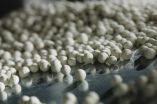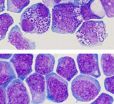(Press-News.org) BUFFALO, N.Y. – Social relationships, fatigue and other coexisting medical problems have a stronger effect on how patients with irritable bowel syndrome (IBS) rate their overall health than the severity of their gastrointestinal symptoms, a University at Buffalo study has found.
"Our findings suggest that in IBS patients and possibly patients with other diseases as well, health perceptions depend to a much larger extent on non-biomedical factors than those of us who are health care providers have ever suspected," says lead author Jeffrey Lackner, PsyD, associate professor of medicine in the UB School of Medicine and Biomedical Sciences.
"This research is leading us toward a better understanding of the complexity of the health of our patients," he continues.
IBS is among the most common, disabling and intractable gastrointestinal disorders. Twice as common among women as men, it is estimated to affect between 25 million to 50 million Americans. Symptoms include abdominal pain, diarrhea and/or constipation.
The UB researchers had expected that the more severe a patients' IBS symptoms, the more it would influence their self-reported health, a term for an individual's perception of how healthy they are.
"We were actually surprised there was not a stronger relationship between IBS symptoms and self-reported health," said Lackner, who directs the UB Behavioral Medicine Clinic, a UBMD clinic, at Erie County Medical Center.
"When we, as clinicians, ask our patients how they are feeling, we expect that they will be on the same page with what we are assessing physically," he continues. "But oftentimes, patients' perceptions are at odds with medical reality. It's a much more complex, cognitive process that factors in a number of medical and social factors that are not necessarily on a physician's radar screen."
The study included 234 IBS patients, 78 percent of whom were women. Subjects were recruited to clinics at UB and Northwestern University as part of two larger studies Lackner is conducting at UB and with colleagues at Northwestern; the studies are the largest IBS clinical trial conducted to date and one of the largest behavioral trials ever funded by the National Institutes of Health.
The findings matter because, according to Lackner, the way that patients with various chronic diseases view their health has been proven to align well with their health outcomes.
"Self-reported health has been found to be a strong and robust predictor for mortality and morbidity even when controlled for the presence of disease symptoms," he explains. "However, very few studies have looked at self-reported health in relation to gastrointestinal disease."
Patients underwent a medical interview to confirm an IBS diagnosis and psychological testing about somatic (medically unexplained symptoms) and psychological factors as well as social well-being.
They were asked whether they would rate their health as excellent, very good, good, fair or poor, a standard method for investigating self-reported health. The sample included severely affected IBS patients who had sought medical treatment because symptoms had significantly affected their quality of life.
The severity of IBS was only modestly associated with how patients evaluated their health in general.
"Some of the most robust factors in our study that most strongly impacted self-reported health were fatigue, coexisting medical problems and negative interactions with family and friends," Lackner says.
He concludes that these findings should provide a better understanding of "the complexity of health," eventually contributing to improved clinical outcomes, which are increasingly important in the value-driven healthcare environment.
INFORMATION:
In a podcast interview with Lackner, American Journal of Gastroenterology editor Paul Moayyedi observed that he was "very jealous of the gastroenterologists in Buffalo for their close association with someone with your expertise. Having a psychologist to discuss their difficult patients with must be fantastic." The complete podcast interview is at: http://gi.org/physician-resources/podcasts/the-american-journal-of-gastroenterology-author-podcasts/lackner/
"The Impact of Physical Complaints, Social Environment and Psychological Functioning on IBS Patients' Health Perceptions: Looking Beyond GI Symptom Severity" was published online in January in the American Journal of Gastroenterology, and in print last month. Co-authors are Gregory D. Gudleski, PhD, Travis J. Stewart, and Gary J. Iacobucci of UB's Behavioral Medicine Clinic; Elyse R. Thakur of Wayne State University and Brennan MR Spiegel, MD, of the David Geffen School of Medicine at UCLA. The research was funded by the NIH.
The UB Behavioral Medicine Clinic seeks to improve the understanding of painful medical diseases, including IBS and others, and to use this information to develop new therapies that help people gain control over their symptoms.
In IBS, non-GI issues are more powerful than symptoms in patients' health perceptions
Findings run counter to physicians' assumptions
2014-03-18
ELSE PRESS RELEASES FROM THIS DATE:
Sorption energy storage and conversion for cooling and heating
2014-03-18
In many industrialized countries, city skylines are dominated by imposing glass façades and skyscrapers made of concrete and steel. There is a drawback to these magnificent structures, though – they often get very hot in the summer, so they mostly need elaborate and costly air conditioning systems. And these already account for some 14 percent of Germany's annual energy consumption. Experts reckon that total cooling requirements in buildings will triple by 2020.
Cooling and heating using metal organic frameworks
Thermally driven cooling systems are one possible alternative ...
What factors contribute to sexual assault in the military and what can be done to prevent it?
2014-03-18
New Rochelle, NY, March 18, 2014–Recent high-profile cases have drawn attention to the problem of sexual assault in the U.S. military, the effects on survivors, and the actions and response of military leadership. Issues such as why there is more sexual assault in the military than in the general population, why it is under-reported, and what preventive approaches should the military adopt are explored in a provocative Roundtable Discussion published in the preview issue of Violence and Gender, a new peer-reviewed journal from Mary Ann Liebert, Inc., publishers. The article ...
Major breakthrough in developing new cancer drugs: Capturing leukemic stem cells
2014-03-18
This news release is available in French.
The Institute for Research in Immunology and Cancer (IRIC) at the Université de Montréal (UdeM), in collaboration with the Maisonneuve-Rosemont Hospital's Quebec Leukemia Cell Bank, recently achieved a significant breakthrough thanks to the laboratory growth of leukemic stem cells, which will speed up the development of new cancer drugs.
In a recent study published in Nature Methods, the scientists involved describe how they succeeded in identifying two new chemical compounds that allow to maintain leukemic stem cells ...
Getting rid of bad vibrations
2014-03-18
Whether you're looking at hairy spider legs, the alien-like faces of ants, or the spiky-looking surfaces of pollen – a scanning electron microscope delivers high-resolution images that are rich in detail. But you can't get perfect images unless you protect the microscope from vibration. If someone walking across the room or an elevator going up and down between nearby floors makes the table shake, you're unlikely to get good results. The simplest way to quell vibrations is to put the microscope on a granite base – a stone so heavy that it dampens vibrations occurring at ...
Who's afraid of math? Study finds some genetic factors
2014-03-18
COLUMBUS, Ohio – A new study of math anxiety shows how some people may be at greater risk to fear math not only because of negative experiences, but also because of genetic risks related to both general anxiety and math skills.
The study, which examined how fraternal and identical twins differ on measures of math anxiety, provides a revised view on why some children – and adults – may develop a fear of math that makes it more difficult for them to solve math problems and succeed in school.
"We found that math anxiety taps into genetic predispositions in two ways: people's ...
Suppressing unwanted memories reduces their unconscious influence on behavior
2014-03-18
Researchers part-funded by the Medical Research Council (MRC) have shown that, contrary to what was previously assumed, suppressing unwanted memories reduces their unconscious influences on subsequent behaviour, and have shed light on how this process happens in the brain.
The study, published online in PNAS, challenges the idea that suppressed memories remain fully preserved in the brain's unconscious, allowing them to be inadvertently expressed in someone's behaviour. The results of the study suggest instead that the act of suppressing intrusive memories helps to disrupt ...
Lessons from a meadow
2014-03-18
For almost 40 years, field scientists strapped on cross-country skis, shouldered backpacks with supplies and set out over three miles of snow and rocks to a field station by a meadow high in the Rocky Mountains as soon as the snow began melting. Every other day, they counted each flower they found, identified the plant it belonged to and kept meticulous records of their observations.
Their observations provide the longest-running scientific study of its kind and tell a story of biological change that teaches scientists new lessons about phenology – the timing of biological ...
Supplements not associated with reduced risk of cardiovascular disease in elderly
2014-03-18
Bottom Line: Daily dietary supplements of omega-3 polyunsaturated fatty acids (also found in fish) or lutein and zeaxanthin (nutrients found in green leafy vegetables) were not associated with reduced risk for cardiovascular disease (CVD) in elderly patients with the eye disease age-related macular degeneration.
Author: The writing group for the Age-Related Eye Disease Study 2 (AREDS2) clinical trial.
Background: Diet studies have suggested that increased intake of fish, a source of omega (ω)-3 fatty acids, can reduce rates of cardiac death, death from all other ...
Study finds high utilization of neuroimaging for headaches despite guidelines
2014-03-18
Bottom Line: Neuroimaging for headaches is frequently ordered by physicians during outpatient visits, despite guidelines that recommend against such routine procedures.
Author: Brian C. Callaghan, M.D., M.S., of the University of Michigan Health System, Ann Arbor, and colleagues.
Background: Most headaches are due to benign causes, and multiple guidelines have recommended against routine neuroimaging for headaches.
How the Study Was Conducted: The authors analyzed National Ambulatory Medical Care Survey data for all headache visits for patients 18 years or older ...
The frozen truth about glaciers, climate change and our future
2014-03-18
Lewis Owen has been scraping out icy fragments of history's truth from one of the most glaciated regions on Earth for the past 25 years.
His frequent excursions to Tibet and the Himalayas have led the University of Cincinnati professor of geology to some cold, hard facts.
Owen knows climate change is immortal – fluctuating across millennia, patiently building toward moments when circumstances are ripe for apocalypse. It was true thousands of years ago, when rapid climate change had profound effects on landscapes and the creatures that lived on them. That scenario could ...
LAST 30 PRESS RELEASES:
EANM launches new award to accelerate alpha radioligand therapy research
Globe-trotting ancient ‘sea-salamander’ fossils rediscovered from Australia’s dawn of the Age of Dinosaurs
Roadmap for Europe’s biodiversity monitoring system
Novel camel antimicrobial peptides show promise against drug-resistant bacteria
Scientists discover why we know when to stop scratching an itch
A hidden reason inner ear cells die – and what it means for preventing hearing loss
Researchers discover how tuberculosis bacteria use a “stealth” mechanism to evade the immune system
New microscopy technique lets scientists see cells in unprecedented detail and color
Sometimes less is more: Scientists rethink how to pack medicine into tiny delivery capsules
Scientists build low-cost microscope to study living cells in zero gravity
The Biophysical Journal names Denis V. Titov the 2025 Paper of the Year-Early Career Investigator awardee
Scientists show how your body senses cold—and why menthol feels cool
Scientists deliver new molecule for getting DNA into cells
Study reveals insights about brain regions linked to OCD, informing potential treatments
Does ocean saltiness influence El Niño?
2026 Young Investigators: ONR celebrates new talent tackling warfighter challenges
Genetics help explain who gets the ‘telltale tingle’ from music, art and literature
Many Americans misunderstand medical aid in dying laws
Researchers publish landmark infectious disease study in ‘Science’
New NSF award supports innovative role-playing game approach to strengthening research security in academia
Kumar named to ACMA Emerging Leaders Program for 2026
AI language models could transform aquatic environmental risk assessment
New isotope tools reveal hidden pathways reshaping the global nitrogen cycle
Study reveals how antibiotic structure controls removal from water using biochar
Why chronic pain lasts longer in women: Immune cells offer clues
Toxic exposure creates epigenetic disease risk over 20 generations
More time spent on social media linked to steroid use intentions among boys and men
New study suggests a “kick it while it’s down” approach to cancer treatment could improve cure rates
Milken Institute, Ann Theodore Foundation launch new grant to support clinical trial for potential sarcoidosis treatment
New strategies boost effectiveness of CAR-NK therapy against cancer
[Press-News.org] In IBS, non-GI issues are more powerful than symptoms in patients' health perceptionsFindings run counter to physicians' assumptions






